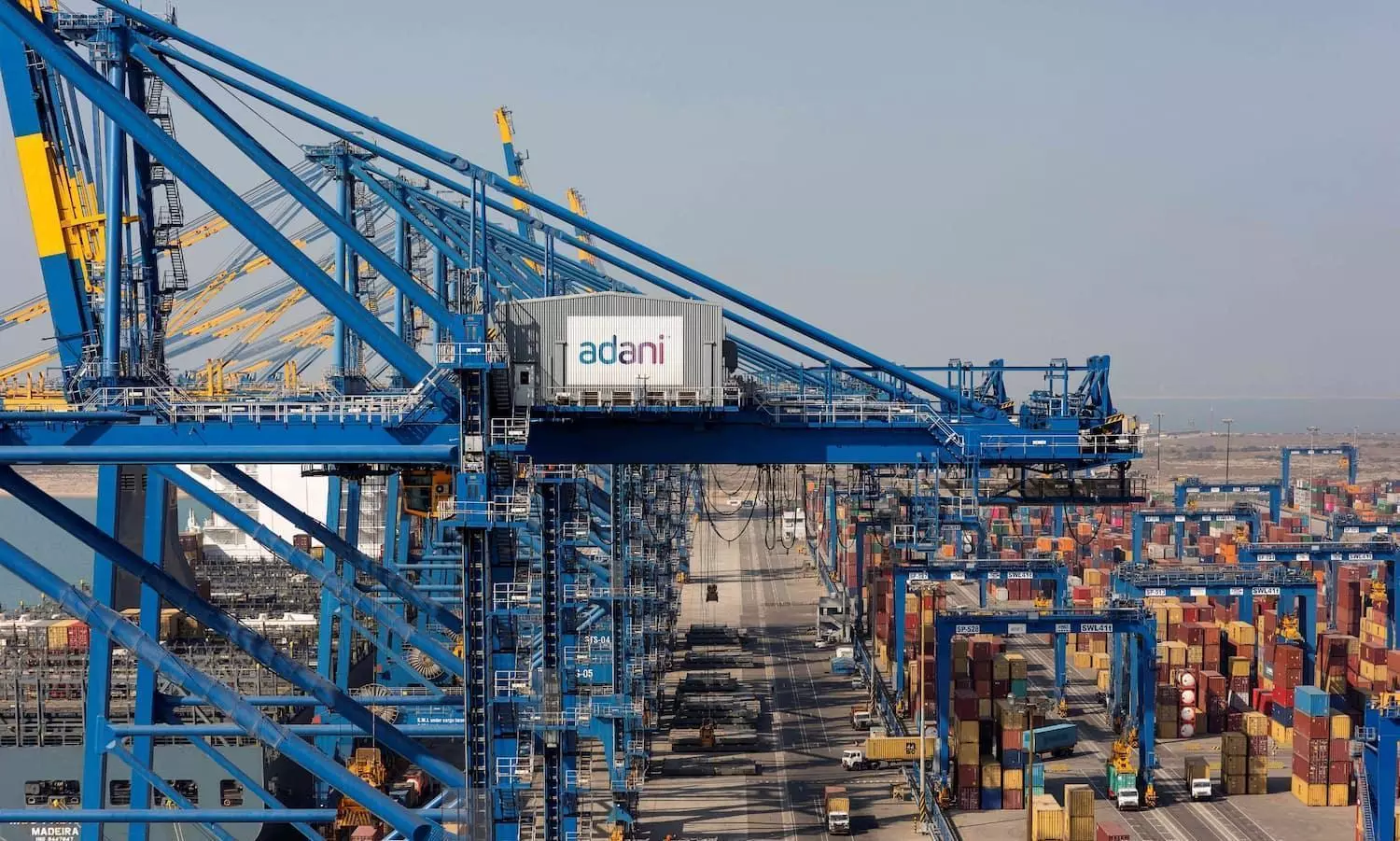Adani Ports to cap net debt at 2.5x of EBITDA
APSEZ expects higher domestic growth, exceeding the projected 5.5–6% global trade growth, driven by new container capacity at Mundra next year.

Photo Credit: Adani Ports & SEZ
APSEZ plans to have a policy of average net debt to EBITDA of 2.5x in times to come, with cash generation prioritised for organic growth and strategic mergers and acquisitions (M&A).
In the post earning call, the company's chief financial officer, Muthukumaran said, “As our investment profile catches up, we expect to actually catch up on the 2.5 leverage profile in times to come.”
The company is targeting a 40% to 45% margin on its non-financial and non-trucking logistics businesses as operations stabilise, reflecting its integrated transport utility vision.”
This strategy relies on global trade recovering to 5.5% to 6% growth, with APSEZ’s domestic business growing at a multiple of that rate, particularly buoyed by new container capacity opening in Mundra next year.
Furthermore, Adani Ports and Special Economic Zone (APSEZ) plans for increasing its capacity and logistics expansion, targeting a handling capacity of 1.1 to 1.2 billion metric tons (BMT) over the next five years.
Muthukumaran said, “This push aims to move beyond this year, we expect volume of 510 million metric tons (MMT) and eventually reach a target of over 840 MMT, the company's commitment to scaling to the ‘billion-ton’ volume mark.
He further added that the core strategy is centered on becoming an integrated transport utility, ensuring supply is ready ahead of demand to maintain best-in-class turnaround times.
Capex focused on ports and ecosystem
The management also noted that APSEZ has committed up to ₹75,000 crores for organic growth over the next five years, with ₹45,000 crores to ₹50,000 crores specifically allocated for ports.
This investment is prioritising capacity expansion based on commodity trends: containers will attract the maximum focus, followed by energy infrastructure (dry cargo), and finally chemical/liquid cargo.
Muthukumaran highlighted the key investments include doubling capacity at Dhamra Port, and ongoing work at Mundra, Vizhinjam Phase-2, Kattupalli, and Hazira. Crucially, the plan extends beyond the quayside; the company is heavily investing in the entire logistics ecosystem, including rail, trucking, and warehousing to optimise evacuation infrastructure.
Internationally, the company is confident in meeting its projected volume of 150 MMT to 160 MMT. This confidence is driven by accelerated Phase-2 development at Colombo, capacity increase via berth elongation in Tanzania, expected cargo growth in Haifa, and the imminent consolidation of its assets in Australia.



